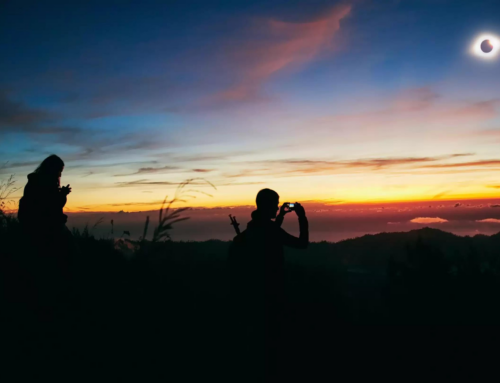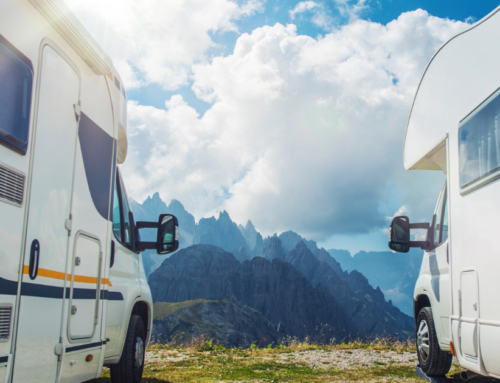GoCampingAmerica.com | Posted April
5th, 2021
3 Ways to Enjoy the Night Skies When
You Camp
Happy Camper Blog
Camping and
stargazing go hand in hand, since once you get away from the bright lights of
the city, the dark skies make it easier to spot constellations and other
celestial wonders. So we asked an expert, Dave Warner, who is the Director
for Educational Outreach for the Colorado Springs Astronomical Society
and a NASA/JPL Solar System Ambassador, for a few tips on making the most of
the night skies when you camp. Here’s what he suggests:
1. Download an App Before You
Go
There are many stargazing apps available. Some are free and others
can be downloaded for a nominal fee. The app Warner likes to use is called
STAR WALK 2. “I think It is the
easiest to use,” he says. To use the app, just point your device at the sky
to identify stars, constellations, planets, satellites, asteroids, comets,
the International Space Station, the Hubble Space Telescope and other
celestial bodies in real time. The
app is available for iPhone and Android phones on the Apple App
Store and on Google Play.
There’s even an app that can help you identify satellites. “I use
the GoSatWatch app which is also available
for iPhones. It will not only show if or when the International Space Station
is flying overhead but will also graphically depict its motion across the
night sky against the background of the moon and stars, making it easy to
identify. If you see satellites flying overhead, it will tell you which one
it is that you’re looking at.” Warner says the best time to view satellites
is right after sunset, as soon as it’s dark enough to begin spotting them. By
11:00 pm or midnight, they’ll be sufficiently in Earth’s shadow so they won’t
be visible anymore.
2. Take a Full Moon
Hike
If you plan your camping trip to coincide with a full moon, you
can take a very enjoyable hike with the bright glow of the moon lighting your
way. Bring along a pair of binoculars and you can try to spot unique features
on the moon such as lunar maria (seas) as well as lunar landforms like
mountains, valleys and Tranquility Base, the landing site of Apollo 11 and
where Astronaut Neil Armstrong performed his historic moonwalk. “When we look
at the full moon we’re seeing the sunlight straight down on the moon similar
to our noon-day sun on Earth.” Warner says. “We can see more features in the
rocks, mountains and valleys in the early morning or late evening when the
sun’s rays are at a sharp angle to the side than in the middle of the day
when the Sun is directly overhead.” You can find a calendar of full moons for
the rest of the year and their names at space.com.
3. Go Planet
Gazing
You might think astronomy activities are something you would only
do after sunset, but if it’s planets you want to see, there’s a different
time frame involved. “Other than Mars, we don’t have any planets that are
visible after sunset, so right now, to see planets like Jupiter and Saturn,
campers would have to get up early in the morning, before the sun comes up,
to see the planets,” Warner says. “I like to suggest that if people have
binoculars, and it doesn’t need to be a really powerful set of binoculars,
that they rest them on a tripod or a fence post or a rock or anything else
that’s sturdy, and they’ll actually be able to see Jupiter’s
moons.”
Other resources Warner recommends are timeanddate.com for planet rise and
set times, moon phases and lunar eclipse information specific to the viewer’s
location and earthsky.org that offers monthly
charts for the night sky. You can also go to skymaps.com/downloads.html to download
and print a PDF of an Evening Sky Map. New sky charts are posted at the
beginning of each month. This two-page guide to the night sky is suitable for
all sky watchers, including newcomers to astronomy.
Of course, another valuable resource you can use is GoCampingAmerica.com,
where you can enter your destination of choice and find a great campground
where you and your family can stargaze to your heart’s
content.




